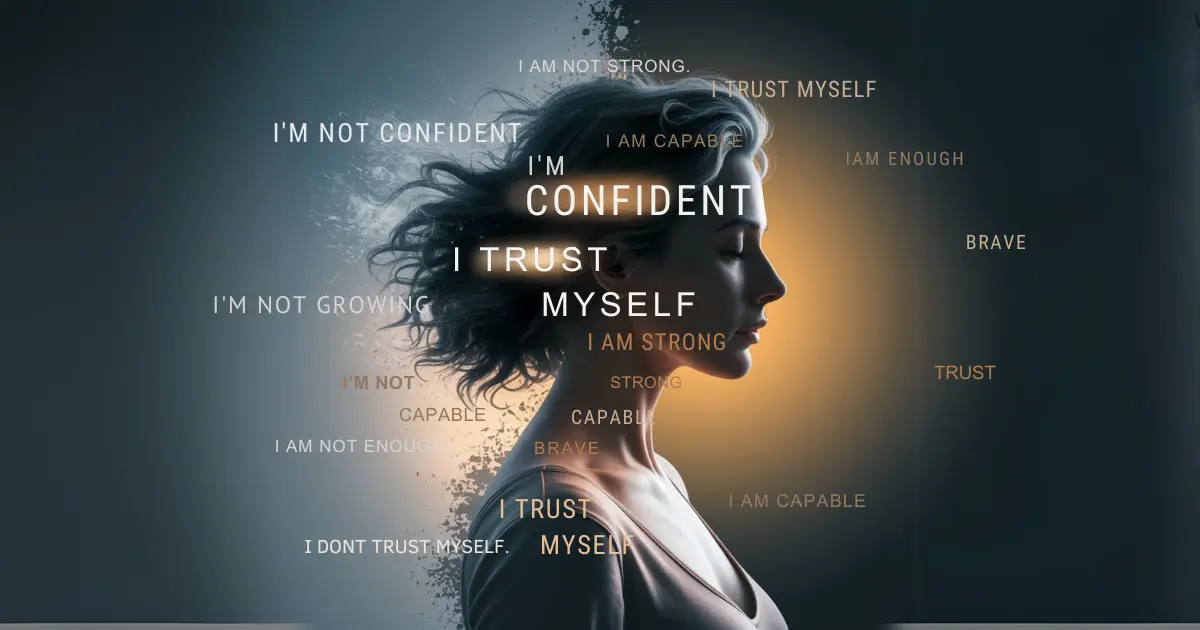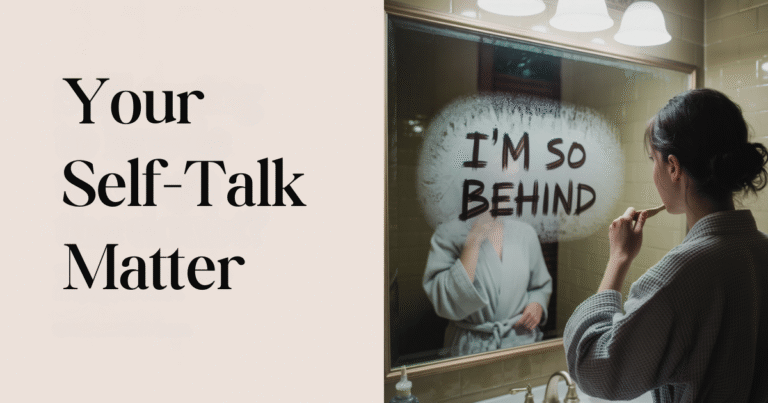Rewrite Your Story & Transform Your Self-Concept with Conscious Language
Most of us don’t spend the day thinking, “I’m reinforcing my self-concept.” And yet—that’s exactly what’s happening in the background.
Every time you say something about yourself—even just in your head, while brushing your teeth or scrolling TikTok—you’re shaping how you see yourself. That inner voice? It matters more than we think. It’s not just background noise. Over time, it becomes your identity.
The empowering part is that you can choose to change it.
You can rewrite your story—and it all begins with the words you use.
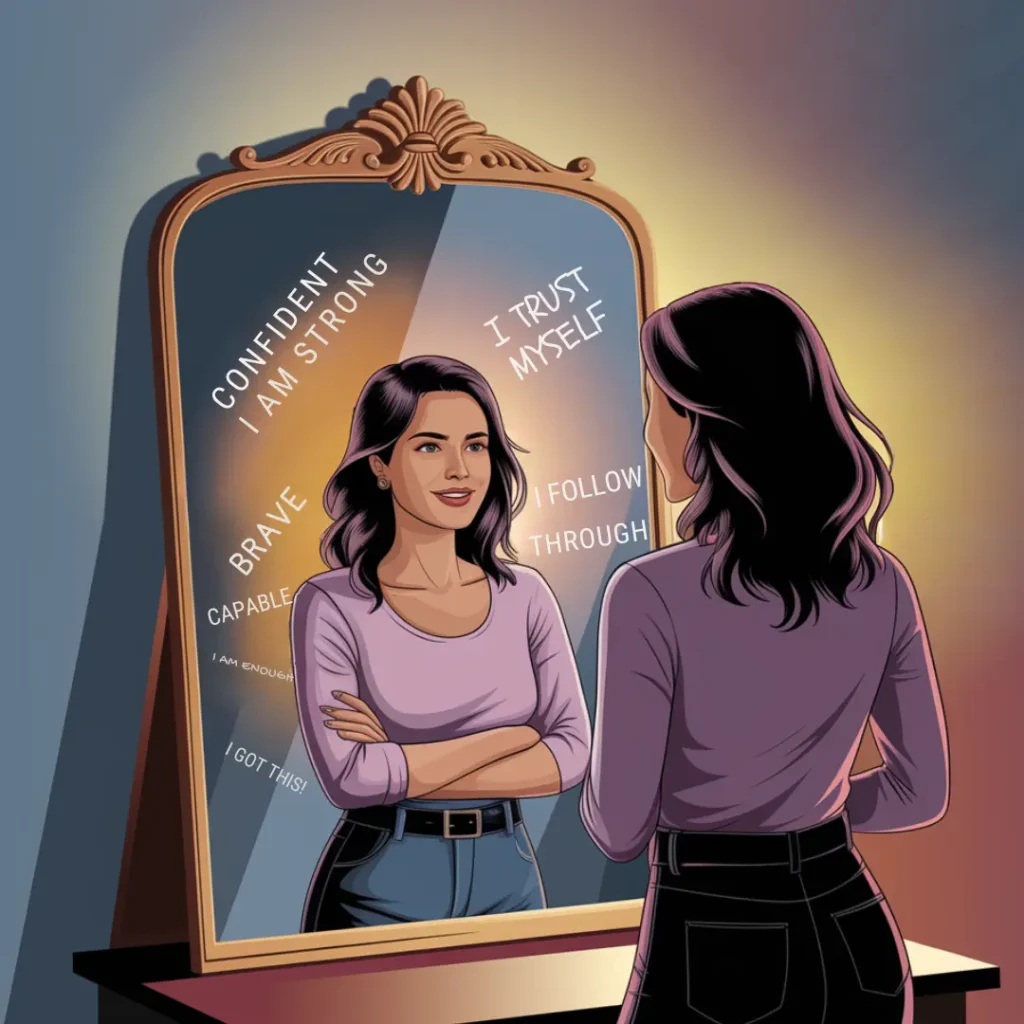
Conscious Language = A Tiny Change That Changes Everything
I used to say stuff like:
At the time, those felt like facts. But in reality? They were just stories I had repeated so many times, I started to believe them.
Everything shifted when I started using conscious language—words that reflected who I was to becoming, not just who I had been. My inner critic got quieter. I began to show up differently.
Not because I was faking it… but because I was growing into it.
That’s the power of a mindset shift. It’s not about forcing yourself to “think positive.”
It’s about speaking in a way that supports your growth—one sentence at a time.
If you want to dive deeper into how this works, I wrote The Power of Words and Growth Mindset to break it all down—with research, real-life examples, and simple ways to start shifting your inner dialogue today.
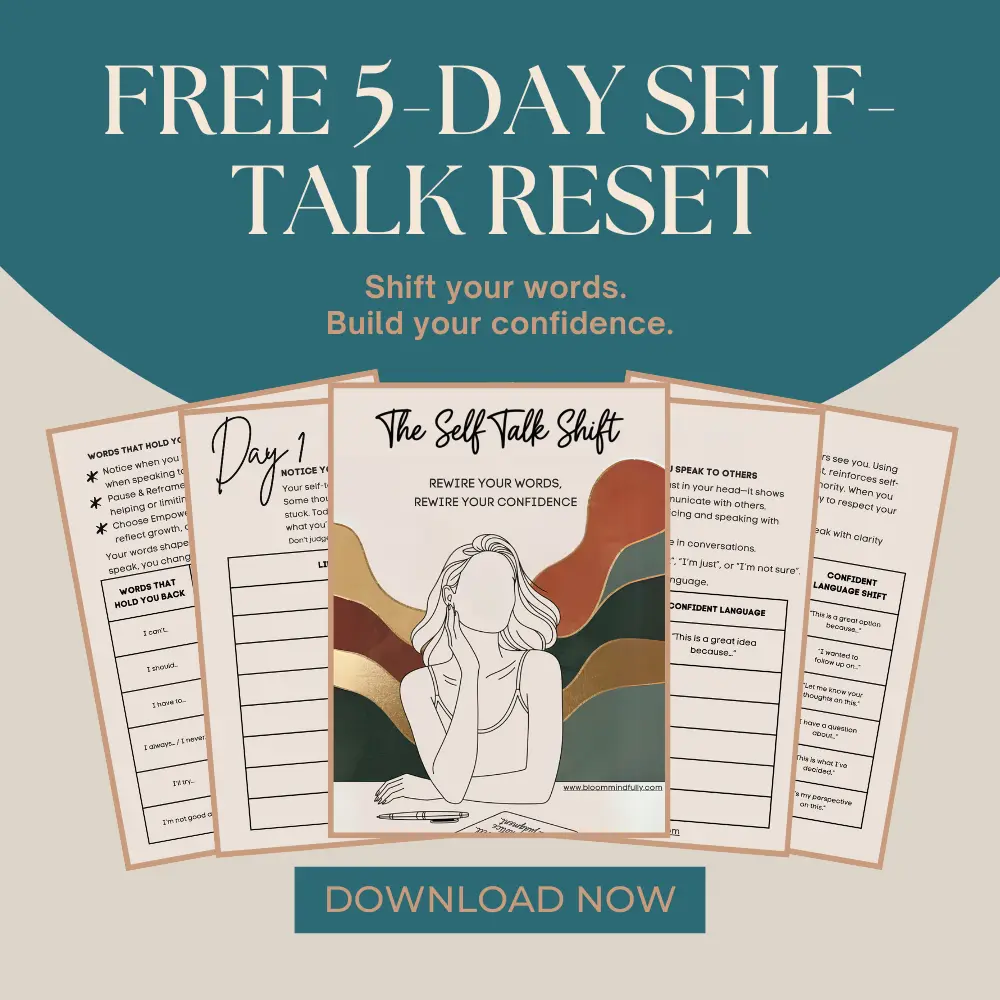
Ready to Speak to Yourself with More Confidence?
The way you speak to yourself changes everything. The Self-Talk Shift 5-Day Guide helps you quiet self-doubt and build a more grounded inner voice — one that supports growth, confidence, and calm.
How the Words You Use Shape How You See Yourself
Let’s start with this:
Your self-concept is how you see yourself—your abilities, your worth, your potential.
And most of it? Comes from words.
Words you’ve heard.
Words you’ve said.
Words that stuck.
Maybe someone once told you:
“You’re too shy.”
“You’re not leadership material.”
“You’re not the type to succeed at that.”
And maybe, over time, you started repeating those things to yourself.
But those old stories? They don’t have to define them. You can choose to rewrite your story.
Here’s what that can looks like:
| Old Thought | New Story |
|---|---|
| “I’m not confident.” | “I’m learning to trust myself more every day.” |
| “I never follow through.” | “I’m practicing showing up for myself— even in small ways.” |
| “I’m bad at business.” | “I’m growing into the kind of entrepreneur who figures things out.” |
It doesn’t have to be perfect. It just has to be honest—and kind.
Your words don’t have to feel polished or natural right away. That’s okay.
Start with something that’s consistent, honest and supportive. That’s what creates real change.
Want help getting started? Here is a deeper dive on how to transform your inner dialogue and shift your self-talk from critical to encouraging— without the pressure to be perfect.
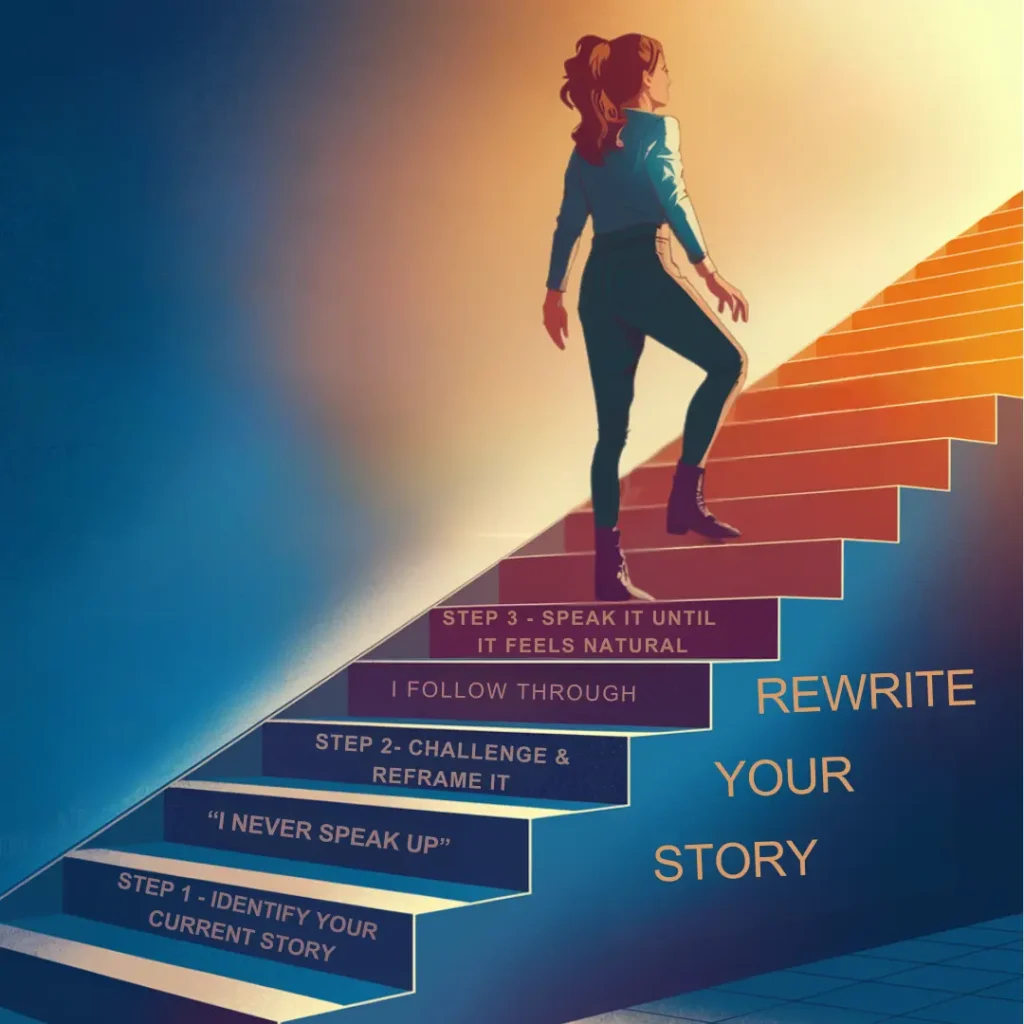
3 Steps to Rewrite Your Story
No journaling marathons required. You can do this in 10 quiet minutes (or while folding laundry).
Step 1: Notice Your Current Story
Think about what you say about yourself. Not just out loud, but in your head too.
Try this:
What’s one sentence you say a lot about…
Write down a couple of those lines—even if they sting. You’re not judging. Just noticing.
Step 2: Challenge & Reframe it
Now ask: Is this true? Or just familiar?”
Then shift the sentence. Not into some unrealistic “I’m perfect and powerful at all times” think— but into something true, encouraging and forward-looking.
| Instead of | Try this |
|---|---|
| “I’m always overwhelmed.” | “I’m learning to take things one step at a time.” |
| “I mess everything up.” | “I’m figuring things out, and that’s okay.” |
Step 3: Speak It Until It Feels Natural
At first, your new words might feel weird.
Like you’re wearing someone else’s shoes.
That’s totally normal. Keep going.
Your brain literally builds new pathways when you say something often.
That’s not woo—it’s neuroscience. Research from Stanford University shows that the language you use every day doesn’t just reflect who you are—it shapes who you become.
The more you repeat your new story, the more your brain accepts it as truth.
And eventually? It becomes your new normal.

How To Make Conscious Language a Daily Habit
This isn’t a “once and done” thing. It’s a practice. The best part is, you don’t have to be perfect at it to see real change.
Here’s how to keep the shift going:
Create a One-Liner About Who You’re Becoming
Example:
“I’m someone who follows through and trusts my own voice.”
Write it. Stick it somewhere. Or just whisper it to yourself on hard days.
Track Small Wins
At the end of the day, ask:
Did I do something today that matches my new story?
Even if it’s something small—like speaking up once, or pausing before criticizing yourself—it counts.
Talk Like Your Future Self
Instead of:
“I’m not good at public speaking.”
Try:
“I’m working on getting better at sharing my ideas.”
See what happened there?
Same person. Whole different energy.
Ready to Rewrite Your Story?
You don’t have to believe every thought your brain throws at you.
You get to choose which ones stick—and which ones you gently rewrite.
Your self-concept isn’t set in stone.
It’s flexible. Forgiving. And ready to grow with you.
If you’re craving encouragement and a space to grow alongside others doing this work too, come join us in Mindful Living for Entrepreneur Moms.
It’s a supportive Facebook community where we practice conscious language, share honest wins (and struggles), and remind each other that rewriting your story doesn’t have to be done alone.
You get to decide the story you tell—so let’s make it one that lifts you up.




